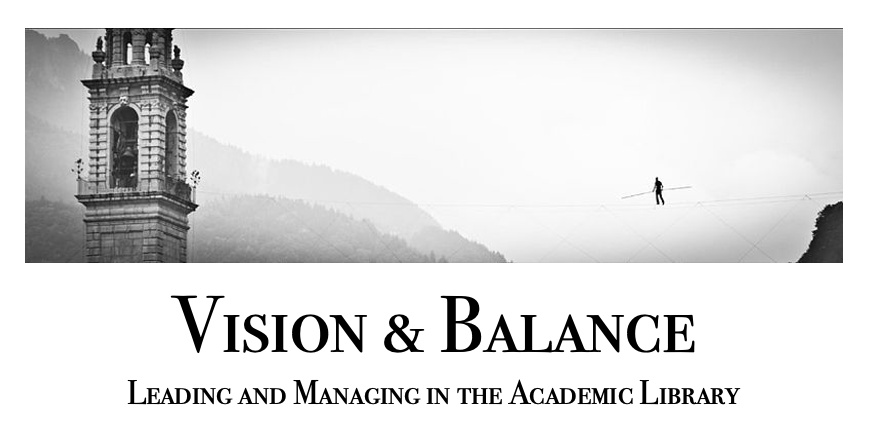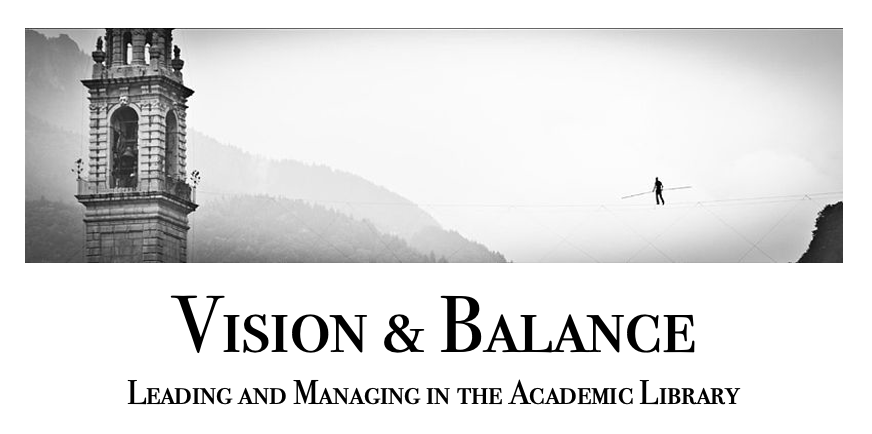For Library Directors: Leading the Library After an Election
Your library is more ideologically diverse than you think it is. In the wake of this bitter election season, here are three principles to help you work with that diversity.

I’m pushing the second installment in my two-part series on innovation to next week, and bringing this week’s Thursday post forward by a day (and making it free to the public), because I think the time is right to address an urgent issue for library leaders: the question of what to do in the wake of a bitterly contested presidential election, when emotions among the people you lead will be running very high and they will be coming to work feeling a volatile mix of fear, elation, trepidation, disappointment, and uncertainty – and will be looking at each other with a mix of feelings as well, in some cases knowing how others voted and in some cases wondering, and perhaps feeling anxious about what their colleagues would think if they knew how they themselves had voted.
In this moment, those of us charged with creating and fostering an environment of inclusion and respect in our libraries need to bear several important things in mind.
First, the people you lead are more ideologically diverse than you think. You probably have a pretty good sense of where the majority of your employees stand on major social and political issues. However, there is more diversity of opinion in your organization than you believe. Why do I say that? Because it’s all too easy for each of us to assume that those around us – people we know to be intelligent, well-informed people of good faith – must think largely the same way we do, at least with regard to those social and political issues that seem most important and fundamental to the good of our country and society. But the reality is that intelligent, well-informed people of good faith often disagree on those important and fundamental issues. And in any organization, those who sense themselves to be out of step with what they believe to be the majority view will feel hesitant to express their views, sensing that to do so would be socially dangerous. This hesitancy tends to mask the ideological diversity of an organization, reinforcing an appearance of uniformity and increasing the social power of the majority.
Second, you are the leader of the whole library, not only those you agree with. We’ve just completed yet another bitter and highly divisive election season, and we now know its outcome. Those you lead are coming to work today in a variety of moods – some relieved, some exhilarated, some depressed, some anxious, some frustrated. Those who believe themselves to be in the ideological majority will express their views more freely; those who suspect they’re in the minority will be quieter and more circumspect, and may even misrepresent their actual feelings in order to avoid social stigma. All will be looking at you – partly to get a sense of where you stand personally but also (and more importantly) for a signal as to whether a diversity of reactions is going to be tolerated in your organization. Publicly expressing solidarity with one side or another – whether explicitly or in code – will communicate clearly that those on the other side don’t actually belong in your library and had better keep their heads down. And this leads to my third and final point:
What you say (and don’t say) makes a big difference. Library directors should never make the mistake – whether through ignorance or false modesty – of underestimating the organizational impact of the things they say and don’t say. As a leader, you’ve probably been frustrated that you seem to have to say the same things over and over and over again before people hear them; at the same time, you might be very surprised to know how many times you’ve said something in an offhand, casual way that has had a significant impact on your organization. The fact is that what you say as the library director carries a different weight than what others in the organization say – you speak for the library as a whole, even when you don’t necessarily intend to. An awareness of this needs to inform all of your private and (especially) public speech in the organization.
What does this mean you should actually do in the context of your own library? I don’t know and can’t say. Each of us leads a different organization, with different social and political dynamics and different needs. But I believe that the principles listed above apply very broadly across organizations, and that keeping them in mind as we navigate the difficult waters of this political moment will greatly benefit the people we lead.
